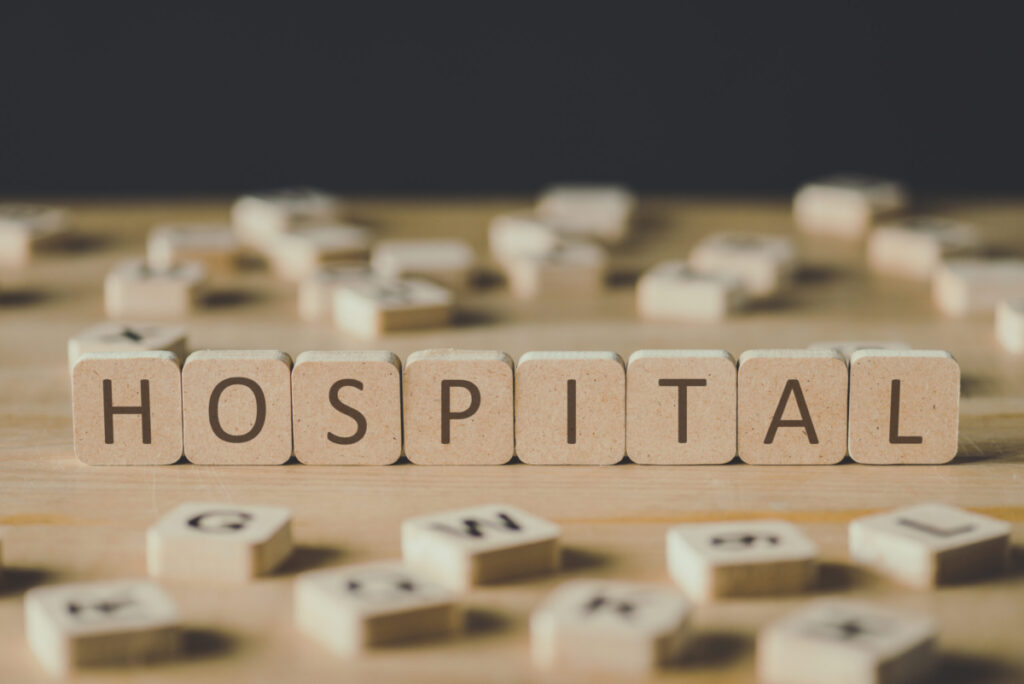Coping with childhood leukemia is one of the toughest battles a family can endure. The diagnosis brings not only emotional pain but also physical, financial, and psychological challenges that affect both parents and children. Across India, families coping with childhood leukemia often find hope not just in hospitals but through a blend of advanced medical treatment, emotional guidance, and community-based financial help.
This guide explores meaningful ways to navigate the journey, from understanding treatment to building emotional support. It also highlights how crowdfunding platforms like ImpactGuru help families raise funds for leukemia treatment so they can focus on healing rather than financial stress.

Table of Contents
- Accessing the Right Medical Support
- How Can Parents Support Their Child Emotionally During Leukemia Treatment?
- What Are the Best Coping Strategies for Families Facing Childhood Leukemia?
- How Can Families Find Financial Support While Coping with Childhood Leukemia?
- How Families Can Stay Strong During a Child’s Leukemia Treatment and Follow-Up?
- Conclusion
- FAQs
Accessing the Right Medical Support
For families coping with childhood leukemia, choosing the right hospital and treatment plan is the most critical step in ensuring effective care and recovery. India offers several leading medical institutions that specialize in pediatric oncology, providing comprehensive care from diagnosis to long-term follow-up.
Some of the top hospitals offering specialized leukemia treatment include:
- Tata Memorial Centre (Mumbai): The hospital is one of the first in pediatric leukemia care, offering advanced treatment protocols and long-term survivor programs.
- AIIMS (Delhi): AIIMS is well-known for its holistic approach to cancer care, including family counseling and child-focused treatment planning.
- Cancer Institute (WIA, Chennai): It offers dedicated pediatric oncology wards and emotional support programs for young patients and their families.
- St. Jude India ChildCare Centres: The centre provides free accommodation and support for families who travel from distant locations for treatment.
These hospitals not only focus on medical treatment but also provide family support during cancer treatment, ensuring parents and caregivers receive guidance on nutrition, infection prevention, and managing side effects.
Choosing an institution that combines expert care with empathy can make a significant difference in your child’s leukemia treatment and recovery journey.
How Can Parents Support Their Child Emotionally During Leukemia Treatment?
While timely medical care forms the backbone of leukemia recovery, emotional and psychological support are equally vital. As children often face fear, confusion, and sudden changes in routine during treatment, parenting a child with cancer during this period means balancing emotional reassurance with consistent communication and presence.
Here are key ways parents can strengthen emotional support:
- Encourage open communication: Let your child share fears, sadness, or confusion freely to feel heard and understood.
- Maintain stable routines: Daily rituals like shared meals, storytime, or quiet play offer comfort during treatment.
- Access professional guidance: Psychologists, oncology social workers, and survivorship clinics help families understand emotional needs, manage treatment-related anxiety, and stay resilient.
- Connect with peer families: Programs like the SMILE initiative at the Cancer Institute (WIA, Chennai) and Tata Memorial Centre’s After Completion of Treatment Clinics allow families to share experiences and coping strategies.
- Create a calm home environment: Consistent reassurance and a supportive atmosphere foster emotional well-being, helping children respond better to treatment.
Strengthening emotional support for families with leukemia patients ensures that neither the child nor the caregivers feels isolated. A calm, connected home environment supports better mental well-being and can help children cope more positively with the overall treatment experience.

What Are the Best Coping Strategies for Families Facing Childhood Leukemia?
Every family’s journey in coping with childhood leukemia is unique. Parenting a child with leukemia means navigating both the treatment process and the emotional journey that follows. Families caring for children with leukemia experience stress, fear of loss, uncertainty about treatment, and economic burden. By adopting focused coping strategies, families can build resilience and maintain stability during this challenging period.
Key strategies to consider:
- Stay informed and engage with the medical team. Understanding the treatment plan, monitoring side effects, and being in touch with doctors helps reduce uncertainty and supports decision-making.
- Maintain familiar routines. Even small consistent practices, bedtime stories, a favourite snack, weekend activity- can provide a sense of normalcy amidst the disruption of hospital visits and treatment cycles.
- Share caregiving responsibilities and seek support. Studies highlight the heavy burden on primary caregivers, especially mothers, including emotional, physical, and financial strain. Use family, friends, counselling, or peer groups to lighten the load.
- Prioritise your own well-being. As a caregiver, your health and emotional resilience matter. Getting rest, maintaining nutrition, and finding occasional breaks can improve your capacity to support your child.
- Celebrate small wins and milestones. A reduction in treatment side-effects, a good test result, or a day without hospital visits is meaningful. Acknowledging them can boost morale for the whole family.
- Plan for the long-term: recovery, follow-up, and normal life. Coping doesn’t end when treatment does. Knowing what to expect in follow-up care, managing possible late effects, and gradually returning to normal routines all form part of a sustained approach.
How Can Families Find Financial Support While Coping with Childhood Leukemia?
Coping with childhood leukemia often brings significant financial strain alongside emotional challenges. Prolonged hospital stays, chemotherapy, medications, and follow-up care can quickly become overwhelming for families. In these moments, finding reliable financial support becomes as crucial as the treatment itself.
Crowdfunding platforms like ImpactGuru have emerged as a vital support for families coping with childhood leukemia, especially when traditional health insurance or savings are not enough. By sharing their child’s story online, parents can connect with compassionate donors and raise funds for treatment, travel, and post-care expenses.
In India, several trusted organizations also extend financial aid to families of children battling leukemia:
- Leukemia Crusaders: This organization provides financial support for underprivileged children across India.
- CanKids KidsCan: This offers nutritional aid, accommodation, and counseling to families during treatment.
- Childhood Leukemia and Lymphoma Foundation (CLLF): CLLF provides grants and essential resources for families in need.
With crowdfunding, families can focus on their child’s healing journey while the community helps ease the financial burden. This financial aid is another way of providing emotional support for families with leukemia patients. Over the years, ImpactGuru has empowered many families in India to fund life-saving cancer treatments, showing how collective compassion can turn hope into recovery.
How Families Can Stay Strong During a Child’s Leukemia Treatment and Follow-Up?
Recovery from childhood leukemia doesn’t end when active treatment stops; it begins a new phase of adjustment, monitoring, and healing for both the child and the family. Regular follow-up visits are crucial to track recovery, manage late effects of treatment, and ensure emotional stability.
1. Medical and Physical Recovery
Children who have undergone leukemia treatment require ongoing medical evaluations to check for any signs of recurrence or secondary effects from chemotherapy and radiation. These checkups often include blood tests, imaging, and developmental assessments. Maintaining communication with the child’s oncologist and care team helps families stay informed about potential long-term health considerations.
2. Emotional Readjustment
Emotional support for families with leukemia patients continues to play a key role even after active treatment, helping both parents and children rebuild confidence.
3. Reintegration into School and Routine
Returning to school and regular social life is an important part of recovery. Parents should coordinate with teachers and school counselors to create a gradual reintegration plan that accounts for the child’s energy levels and any cognitive changes post-treatment. Encouraging peer interactions can also strengthen emotional healing and restore confidence.
4. Building a Sustainable Support Network
Even after medical clearance, maintaining a support network of family, healthcare professionals, and peer parents remains vital. Experts state that families who continue to access emotional and community support after treatment show better long-term coping outcomes and overall well-being.
By focusing on both physical and emotional recovery, families can continue supporting a child with leukemia and ensure a smoother transition into post-treatment life. Compassion, patience, and proactive care together form the foundation of sustained healing for children who have bravely fought leukemia.
Your referral could be the turning point in someone’s recovery.
Share this ImpactGuru link and help them raise funds online.
Conclusion
Coping with childhood leukemia demands immense strength, emotional balance, and financial resilience. From understanding treatment plans and managing emotions to ensuring consistent follow-up care, families play a crucial role in a child’s recovery. With the right medical guidance, emotional support, and access to reliable financial resources, every step of this journey becomes a little more manageable.
Parenting a child with cancer demands patience, communication, and a supportive community. Platforms like ImpactGuru empower families to focus on healing instead of financial stress by helping them raise funds for leukemia treatment through trusted medical crowdfunding.
FAQs
When a child is diagnosed with leukemia, emotional coping involves open communication, seeking psychosocial support, and building a strong support network. In India, psychological and social care integrated with medical treatment is becoming more structured, thanks to initiatives like the Indian Childhood Cancer Initiative.
Families in India can access support from organizations such as CanKids KidsCan, which helps with financial assistance for diagnostics, treatment, and navigating welfare schemes like Ayushman Bharat.
It’s important to have a survivorship care plan. Parents should ask the treating oncologist for a written treatment summary and regular follow-up schedule.
This follow-up may include monitoring for physical late effects, cognitive issues, and providing mental health support.
Yes — though access varies, many pediatric oncology centres in India are now integrating psychosocial services (counselors, social workers) as part of standard care.
National efforts like the ICCI (Indian Childhood Cancer Initiative) are working to standardize these services across the country.
Caregivers can explore crowdfunding platforms (like ImpactGuru) to raise funds for treatment. On top of that, NGOs such as CanKids help families access financial aid and government welfare programs. It also helps to connect with peer-support groups (online or local) to share practical guidance on cost management, navigating hospitals, and applying for subsidies.












